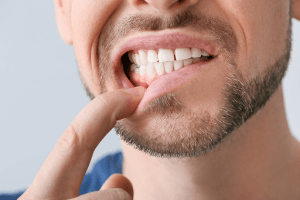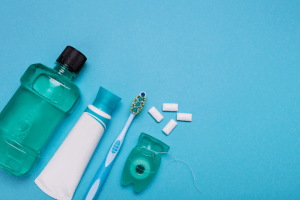Table of Contents
- Introduction
- Understanding Tooth Anatomy
- Common Causes of Tooth Pain
- Signs and Symptoms of Extreme Tooth Pain
- When to Seek Professional Help
- Diagnosing the Underlying Issue
- Dental Treatments for Extreme Tooth Pain
- Home Remedies to Relieve Tooth Pain
- Preventing Tooth Pain: Dental Hygiene Tips
- The Connection Between Tooth Pain and Overall Health
- The Psychological Impact of Dental Pain
- Dental Anxiety and How to Overcome It
- Taking Care of Your Oral Health
- The Role of Diet in Dental Health
- Conclusion
- FAQs
Introduction
To begin with, have you ever experienced that unbearable, extreme tooth pain, making it difficult to eat, sleep, or even concentrate on your daily tasks? If so, you’re not alone. Further, tooth pain is a common dental issue that affects millions of people worldwide. While occasional mild tooth sensitivity is common, experiencing extreme tooth pain is an alarming sign that something might be amiss with your oral health.
In this comprehensive guide, we will delve into the various causes of extreme tooth pain, understanding the importance of proper dental care, and exploring effective solutions to alleviate the pain and discomfort.
Understanding Tooth Anatomy
Before we embark on our journey to uncover the reasons behind extreme tooth pain, let’s briefly understand the anatomy of a tooth. Furthermore, each tooth consists of several layers: the hard outer enamel, a sensitive layer called dentin, and the innermost pulp containing nerves and blood vessels. Further, when any of these components are compromised, it can lead to tooth pain.
Common Causes of Tooth Pain
Dental Caries (Tooth Decay)
Dental caries, commonly known as tooth decay, is a prevalent cause of tooth pain and pain in jaw. Further, bacteria in the mouth produce acids that erode the enamel, leading to cavities. As the decay progresses, it can reach the dentin and pulp, causing intense pain and sensitivity.
Dental Abscess
A dental abscess is a pus-filled sac caused by a bacterial infection deep within the tooth or gums. It can result from untreated tooth decay or trauma, and the pain associated with an abscess can be excruciating.
Tooth Fracture
Accidents, injuries, or biting on hard objects can cause tooth fractures. Further, these fractures can expose the inner layers of the tooth, leading to severe pain and sensitivity.
Gum Disease (Gingivitis)
Gum disease occurs due to the buildup of plaque and tartar, leading to inflammation and infection of the gums. Besides, the pain may be felt as a dull ache around the affected tooth.
Dental Erosion
Dental erosion is the gradual loss of enamel due to acid attacks, often caused by excessive consumption of acidic foods and drinks. Additionally, it can lead to tooth sensitivity and pain.
Dental Sensitivity
Tooth sensitivity can be caused by various factors, such as exposed dentin, gum recession, or worn-out enamel. Further, it can cause discomfort, especially when consuming hot, cold, sweet, or acidic foods.
Bruxism (Teeth Grinding)
Bruxism, the habit of grinding or clenching teeth, can exert excessive pressure on the teeth, leading to tooth pain, toothaches, headaches, and pain in the jaw.
Signs and Symptoms of Extreme Tooth Pain
Recognizing the signs of extreme tooth pain is crucial for understanding the underlying issue and seeking timely dental care. Some common symptoms include:
- Sharp, throbbing, or shooting pain in the affected tooth.
- Sensitivity to hot or cold temperatures.
- Swelling and tenderness in the gums surrounding the painful tooth.
- Difficulty chewing or biting without pain.
- Bad taste or foul odour in the mouth.
When to Seek Professional Help
While mild tooth sensitivity may not be a cause for concern, extreme tooth pain should never be ignored. Further, if you experience persistent severe pain or any of the symptoms mentioned above, it’s essential to consult a dentist promptly. Lastly, early diagnosis and treatment can prevent the issue from worsening and potentially save the affected tooth. To schedule an appointment with your friendly neighbourhood dentists at Awesome Smille, Gainesville, VA, click here.
Diagnosing the Underlying Issue
When you visit a dentist for severe tooth pain, they will perform a thorough examination to diagnose the root cause of the problem. This may involve:
- Reviewing your dental history and symptoms.
- Conducting X-rays to identify hidden issues.
- Performing tests to pinpoint the exact cause of the pain.
- Once the problem is identified, your dentist will recommend the most appropriate treatment plan to address the underlying issue and alleviate your discomfort.
Dental Treatments for Extreme Tooth Pain
The treatment for extreme tooth pain varies depending on the cause and severity of the issue. Here are some common dental procedures used to treat tooth pain:
Fillings and Restorations
For small cavities or areas of dental decay, the dentist may use fillings to restore the damaged tooth structure, alleviating pain and preventing further decay.
Root Canal Therapy
When the dental pulp is infected or damaged, a root canal procedure may be necessary. Furthermore, this treatment involves removing the infected pulp, cleaning the root canals, and sealing the tooth to prevent further infection.
Tooth Extraction
In cases of severe tooth decay or damage that cannot be restored, tooth extraction may be the only viable option. The dentist will remove the affected tooth and discuss replacement options, such as dental implants or bridges.
Gum Disease Treatment
Treating gum disease may involve deep cleaning procedures like scaling and root planing to remove plaque and tartar from below the gum line. In advanced cases, surgical interventions may be necessary.
Dental Crown Placement
For extensively damaged teeth, dental crowns can be placed to restore their shape, strength, and function. Further, this protects the tooth from further damage and pain.
Orthodontic Treatment
In some cases, tooth pain may result from misalignment or malocclusion issues. Orthodontic treatments, such as braces or aligners, can correct these problems, improving both oral health and overall comfort.
Home Remedies to Relieve Tooth Pain
While waiting for a dental appointment, several home remedies can provide temporary relief from extreme tooth pain. However, it’s essential to remember that these remedies do not replace professional dental care but can offer some comfort until you can see a dentist.
- Saltwater Rinse: A simple saltwater rinse can help reduce inflammation and kill harmful bacteria in the mouth, providing some relief from pain.
- Cold Compress: Applying a cold compress on the affected area can numb the nerves and reduce swelling, minimizing pain.
- Clove Oil: Clove oil contains natural analgesic properties and can be applied to the painful area to alleviate discomfort.
- Garlic Paste: Garlic has antimicrobial properties and can be used as a paste or crushed directly on the affected tooth to reduce pain.
- Over-the-counter Pain Relievers: Over-the-counter pain relievers like ibuprofen can help temporarily alleviate tooth pain until you can see a dentist.
Preventing Tooth Pain: Dental Hygiene Tips
As the saying goes, prevention is better than cure. Following proper dental hygiene practices can go a long way in preventing tooth pain and ensuring optimal oral health.
- Brushing Techniques: Use a soft-bristled toothbrush and fluoride toothpaste to brush your teeth gently in circular motions, covering all surfaces.
- Flossing Importance: Floss daily to remove plaque and food particles from between your teeth and under the gumline, where the toothbrush cannot reach.
- Regular Dental Check-ups: Visit your dentist at least twice a year for routine check-ups and cleanings, helping identify and address issues early.
- Balanced Diet and Hydration: Consume a balanced diet rich in vitamins and minerals, and stay hydrated to support healthy teeth and gums.
- Avoiding Harmful Habits: Avoid habits like smoking, excessive consumption of sugary or acidic foods, and teeth grinding, which can damage your teeth and lead to pain.
The Connection Between Tooth Pain and Overall Health
Many people may not realize the significant impact that oral health has on overall well-being. Besides, poor dental health can contribute to various systemic health issues, including heart disease, diabetes, respiratory problems, and complications during pregnancy.
Taking care of your teeth and addressing any dental pain promptly is not just about having a beautiful smile but also about safeguarding your overall health.
The Psychological Impact of Dental Pain
Apart from the physical discomfort, extreme tooth pain can also take a toll on one’s mental well-being. Additionally, dental pain can cause anxiety, sleep disturbances, irritability, and even depression.
It’s essential to acknowledge and address the psychological impact of dental pain while seeking appropriate dental care.
Dental Anxiety and How to Overcome It
For some people, the fear of dental procedures can be a significant barrier to seeking timely treatment for tooth pain. Further, dental anxiety is a common issue that can be overcome through communication with the dentist, deep breathing exercises, and seeking distraction during the procedure.
Remember, open communication with your dentist about your fears and concerns can help them tailor the treatment to ensure your comfort.
Taking Care of Your Oral Health
Maintaining good oral hygiene is essential for preventing tooth pain and other dental problems. Here are some tips to take care of your oral health:
- Proper Brushing: Brush your teeth at least twice a day for two minutes each time, paying attention to all tooth surfaces and your tongue. Checkout best brushing practices.
- Flossing and Mouthwash: Floss daily to clean between teeth, and use mouthwash to rinse away bacteria and freshen your breath.
- Tongue Cleaning: Don’t forget to clean your tongue gently to remove bacteria that can cause bad breath.
- Regular Dental Visits: Schedule regular dental check-ups and cleanings to catch any issues early and maintain a healthy smile.
The Role of Diet in Dental Health
The foods and drinks you consume play a vital role in your dental health. Further, limiting sugary and acidic foods, consuming a balanced diet, and drinking plenty of water can help prevent dental issues and reduce the risk of tooth pain.
Conclusion
To conclude, extreme tooth pain can be a distressing experience, impacting both physical and emotional well-being. Understanding the causes of tooth pain, seeking prompt professional care, and adopting good oral hygiene practices can help prevent and manage dental issues effectively. Lastly, remember, that your oral health is an integral part of your overall health, so don’t neglect it.
FAQs
Q. Can tooth pain go away on its own?
A. In some cases, mild tooth pain may subside on its own, but it’s essential to identify and treat the underlying issue to prevent it from worsening.
Q. Can I use heat to relieve tooth pain?
A. Avoid using heat on the affected area, as it can exacerbate inflammation and increase pain. Further, stick to using a cold compress for relief.
Q. Are there any natural remedies for tooth pain?
A. Yes, some natural remedies like clove oil, garlic paste, and saltwater rinses can provide temporary relief, but they do not replace professional dental care.
Q. How can I prevent tooth pain?
A. Maintain good oral hygiene, visit your dentist regularly, avoid harmful habits, and follow a balanced diet to prevent tooth pain.
Q. Is tooth sensitivity a cause for concern?
A. To begin with, mild tooth sensitivity may not be a significant concern, but if it becomes severe or persistent, it’s essential to consult your dentist to rule out underlying issues.
Q. I have a Toothache what to do?
A. Rinse your mouth: Gently rinse your mouth with warm saltwater to help reduce inflammation and cleanse the area.
Floss carefully: Sometimes, food particles stuck between teeth can cause pain. Carefully floss around the affected tooth to ensure there’s no debris trapped.
Over-the-counter pain relief: You can take over-the-counter pain relievers like ibuprofen or acetaminophen following the recommended dosage to help manage the pain temporarily.
Q. Why does my jaw hurt?
A. Dental Issues: Cavities, abscessed teeth, or gum infections can radiate pain to the jaw area.
Misaligned Bite: An improper bite alignment can strain the jaw muscles and lead to discomfort.
Injury or Trauma: Any physical impact to the jaw, such as accidents or sports injuries, can result in jaw pain.







